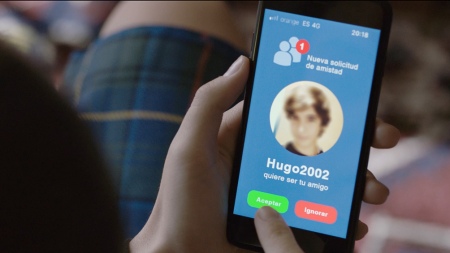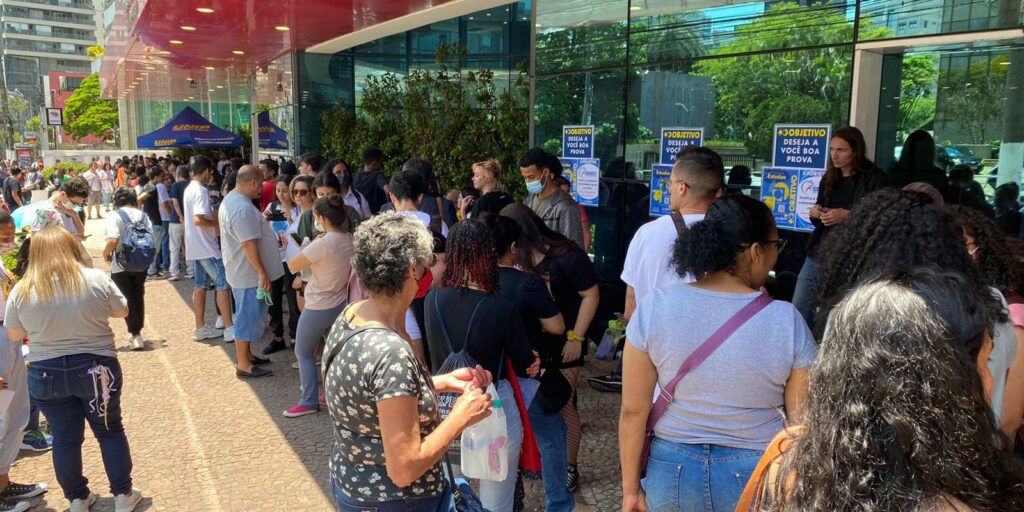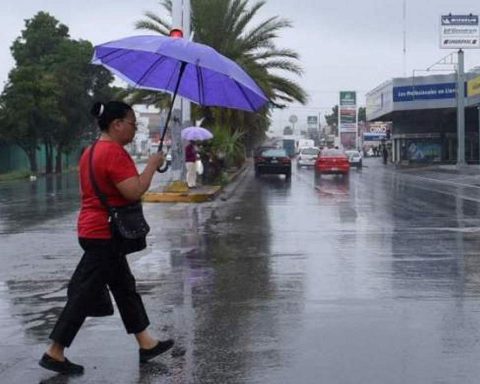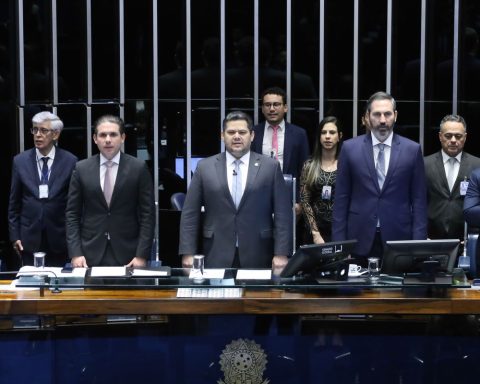Seven out of ten boys, girls and adolescents (NNyA) who talk to strangers they request material in the context of nudity, warned the NGO Grooming Argentinawhich on the eve of the National Day to Fight Grooming, which is commemorated every November 13, produced a study “making visible the degree of vulnerability to which boys and girls are exposed in the Internet ecosystem.”
The investigation was carried out by the NGO’s Forensic Investigation team, where girls and boys between 9 and 17 years old were the main sources of information through 5,557 surveys delivered in public and private management schools in different parts of the country between January and November 2022.
“According to the metrics of this report, we revalidate our assertion by pointing out that we are facing the most serious crime of this century in digital matters against children and adolescents,” said Hernán Navarro, founder of Grooming Argentina.
The NGO warned that “there is still much that is unknown about the crime of grooming as a form of sexual abuse” and graphed that 1 out of 3 girls and boys in Argentina do not know what this crime is.
What is grooming
The organization defines grooming as “sexual harassment of children and adolescents through digital means, consisting of actions generally carried out by adults, in order to establish contact for sexual purposes”.
The average age at which they acquire their first cell phone, the game platforms and/or social networks most used by boys and girls, if they have ever had a virtual encounter with someone they do not know, and who requests intimate sexual content from them were the topics in which which the surveys focused.
From the investigation it was observed that 6 out of 10 girls and boys have their first cell phone with internet access after the age of 9 and that on average they spend 6 hours a day connected in the digital environment.
“According to the metrics of this report, we revalidate our assertion by pointing out that we are facing the most serious crime of this century in digital matters against children and adolescents”
In turn, regarding the use of Information and Communication Technologies (ICTs), 8 out of 10 adolescents between 13 and 17 years old have and frequent at least 3 social networks with greater preference, and 7 out of 10 children between 9 and 12 years play online games.
In these digital environments6 out of 10 girls and boys relate to unknown peopletending the highest percentages of interaction with strangers the provinces of Neuquen (79.9%), Jujuy(73.5%), Santiago del Estero (64.3%), Tucuman (59.4%), Black river (59%), saint Louis (57.3%), Cordova (56.3%), Chaco (55.8%), Between rivers (50.7%), mendoza (40.2%), Buenos Aires (37.9%) and Land of Fire (21.6%).
How they try to deceive the NNyA
Through online game platforms and social networks, boys and girls who talk to strangers tend to receive “courtship” proposals from strangerswhich are frequently used as manipulation strategies to then order photos.
In this sense, 1 out of 3 received some proposal of this typemainly on Roblox and Among Us platforms, while 1 out of every 3 victims of this proposal are children and adolescent boys and 2 out of 3 are girls and adolescent women.
Regarding requests for material of a sexual nature, the organization recorded that 2 out of 3 conversations that this population has with strangers are sexualized.
? #13N | “National Day of the fight against #grooming“.
? Let’s join joint efforts as a Society promoting awareness and awareness of this crime that affects #NNyA.
?? Let’s reflect on the role we play in protecting you in the digital environment. pic.twitter.com/kc6OFByBNU
– Grooming Argentina (@GroomingArg) November 13, 2022
In 69% of the cases the aggressors are unknown to the victim, while in 31% the perpetrator was part of their inner circle, the report adds.
The NGO warned that many boys and girls “do not identify themselves as victims, but as participants in a game” and that even when the groomer explicitly expresses their intentions, they remain silent “for fear of possible consequences.”
Given this, Grooming Argentina indicated that the complaint it’s the “only tool that’s going to cut through the abuse” and in this sense he recalled that the NGO developed the first application in Latin America that allows reporting a case of grooming in real time and free of charge, called “Gapp”.
The founder of the NGO warned that the pandemic “notably exacerbated” the problem and called for “doubling efforts to build prevention and protection instances in the digital world for our children and adolescents, since we are not facing virtual violence. , but digital and real”.


















